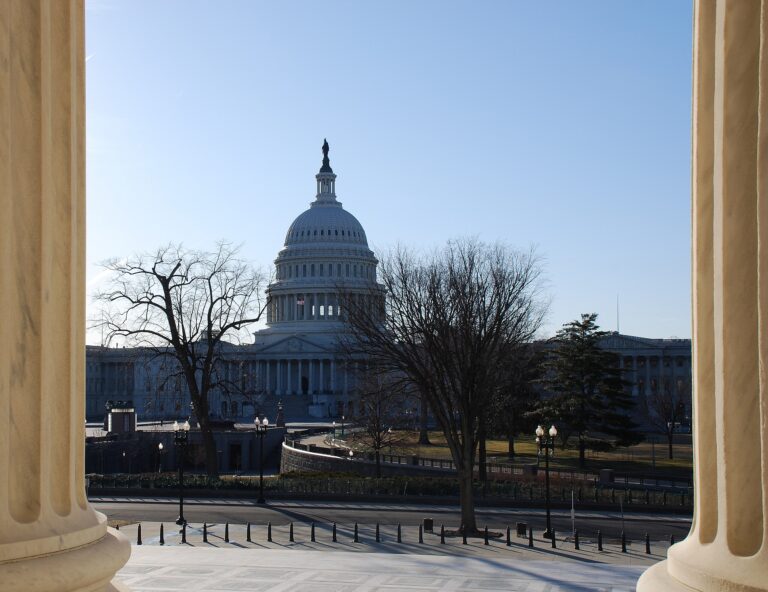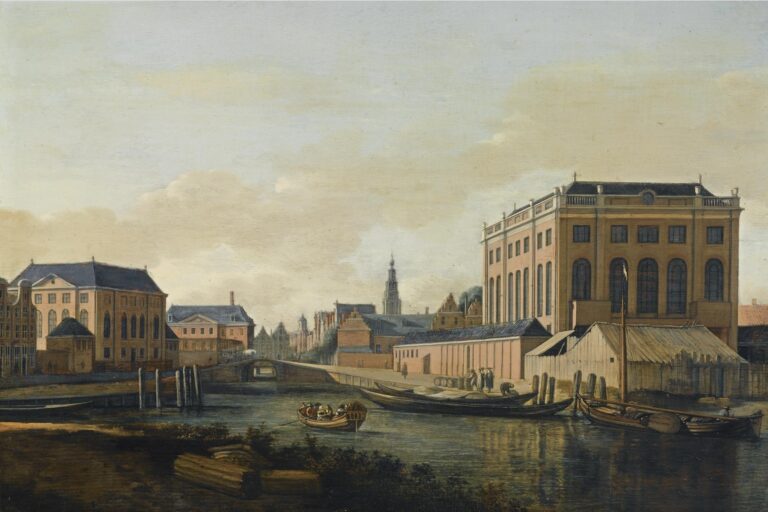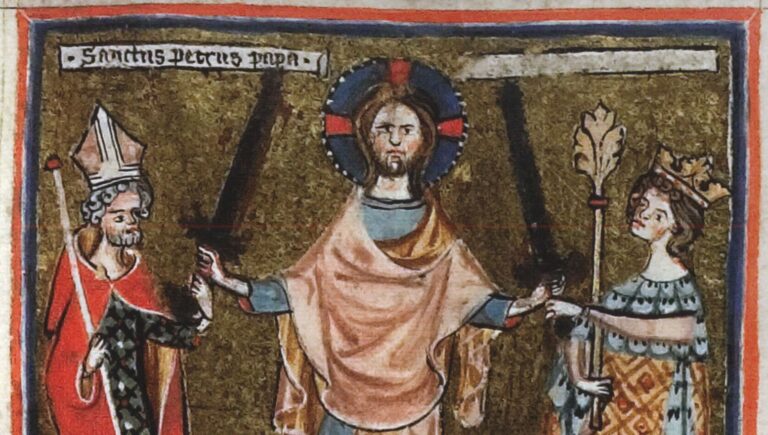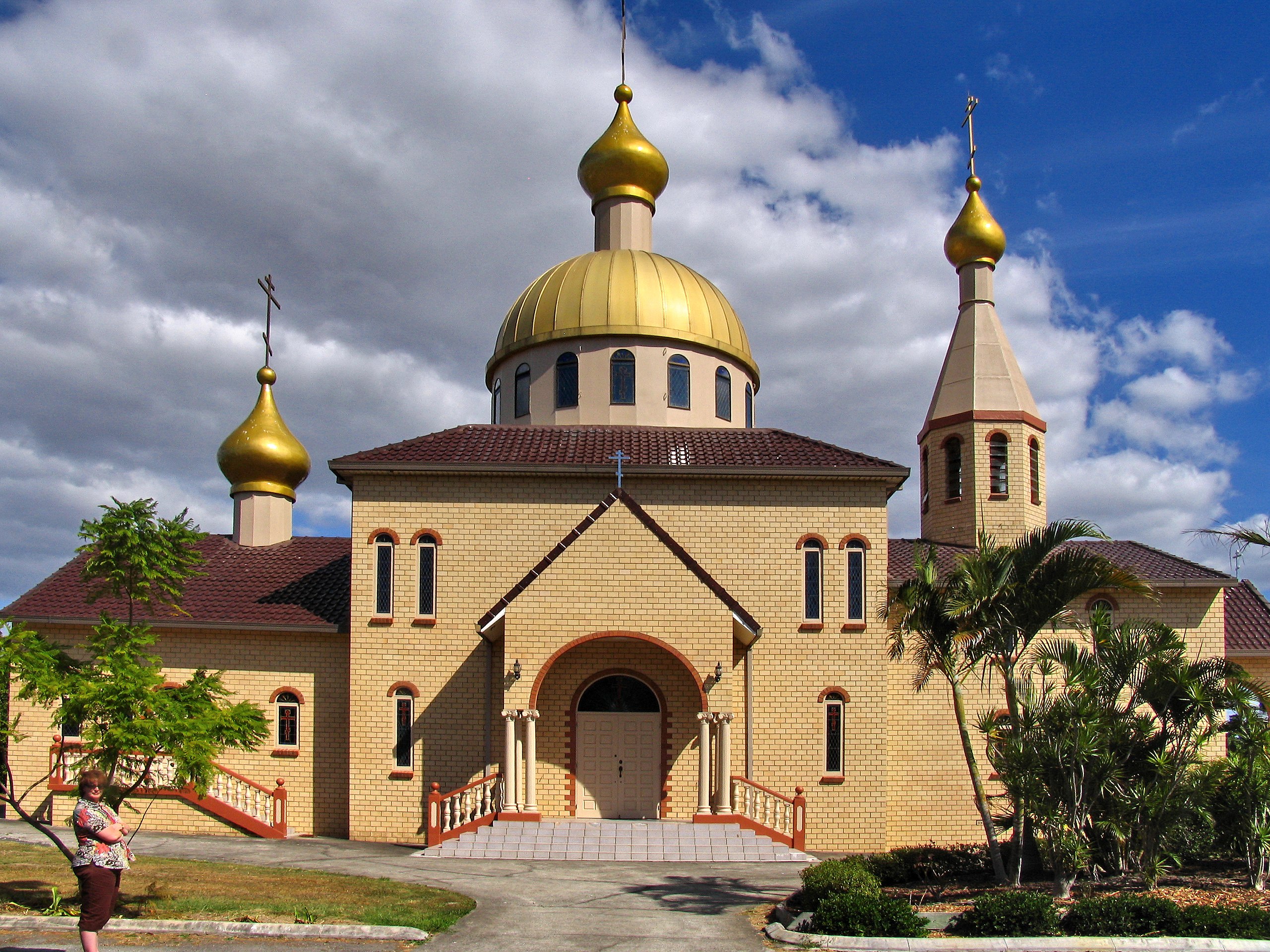
Gender, Russian Orthodoxy, and the Invention of “Traditional” Values
Regina Elsner
Russian Orthodox Church, Rocklea, Russia by Bert Knot (CC 2.0)
This article is part of our series on Transnational Christian Nationalism, and its impact on politics, the rule of law, and religious freedom. If you’d like to explore other articles in this series, click here.
For many years, Russia has been known as one of the main players in global conservative networks. One of the key topics that links various organizations and institutions worldwide is the struggle for the so-called natural order (i.e., the idea of social structures that are supposedly based on human nature). In most cases, this human nature is conceived statically and backed by a transcendent rootedness in religion; it is considered unchangeable. Accordingly, the term “gender” as a concept explaining the fluidity of human identity contains everything that threatens the supposed natural order. It has thus become a key term for understanding right-wing narratives and the success of right-wing networks.
Russia owes its leading role in these networks above all to a close relation between conservative identity politics and the Russian Orthodox Church (ROC), which religiously charges the political-ideological agenda and integrates it internationally through its ecumenical relations. This development has come to a head in recent decades and escalated dramatically with the religious legitimization of the Russian war of aggression against Ukraine as a defense of the “natural order” against gay pride parades in February 2022. This escalation of anti-gender strategies into a full-scale war, coined as “war like no other” by Petr Kratochvíl and Mila O’Sullivan, urges to make us aware of how to deal with right-wing conservative actors in Western Europe and the USA.
The Rise of the Category of “Traditional” from the 1990s
Initially, with the end of the Soviet Union, gender issues (e.g.,the strengthening of women’s rights in all areas of life and the visibility of non-heteronormative sexual orientation) and gender identity seemed to fall on fertile ground. Women’s rights groups had formed in the 1980s, remarkably with the support of explicitly church-affiliated orthodox women. The demands of the first Soviet feminist movements were set in the context of extensive uniformed Soviet realism: women expected an easing of physically hard labor for women and opposed the unification of female life experience. Remarkably, this type of feminism differs significantly from Western feminist and gender strategies. The same divergence is true for the emerging sphere of gender research in the 1990s, which complied largely to the governmental strategy to improve the situation of women and the family and to protect motherhood and childhood. This strategy was and continues to be in line with the religious, orthodox view on women and gender roles, in which the main enemy was not patriarchy but the lack of feminine distinctiveness. Accordingly, LGBTIQ* issues were integrated rather inconspicuously into the work of human rights groups and civil society initiatives while prejudice against gays and lesbians remained widespread and caused a great deal of suffering, particularly in the family sphere. However, there was still a lack of large-scale public counter-movements. Critical gender studies, as an analytical tool for fundamental social injustice, was not acquired in a sustainable manner. Instead, it remained significantly funded by foreign donors and, therefore, could be easily re-framed as a foreign, alien approach to questions of sex and gender at a later stage.
At the end of the 1990s, gender-related topics were overtaken by the consolidation of Russian identity discourse. After several years of reorientation following the end of state oppression, the ROC had found a closeness to the state that served to form a new post-Soviet identity. The central buzzword was “traditionality,” as it promised to ensure a historically rooted identity superior to modern models like democracy with its challenges of individual human rights and plurality. This kind of identity politics was successful as large parts of Russia’s population experienced enormous existential social and economic challenges during the 1990s and were deeply disappointed by the democratic system. At the same time, the Soviet past and its hardships could not (yet) serve as a positive identity marker. Traditionality was both a departure from the difficult and ambiguous Soviet past and a positive connotation of who Russians were before now. Being aware of the stabilizing effect of such a rooted and religiously legitimized identity, the state and church invented the “spiritual-moral and cultural traditions” of Russia, which found their way from history school books to exhibitions and the Strategy of National Security of the Russian Federation.
The concept of Russia’s traditional religious communities l, implemented into the legislation on said communities in 1997, and a traditional value system were two crucial strategies to unite society and counter the general uncertainty with a clear framework for its own identity. The effects on the level of social engineering were twofold. On the one hand, references to “tradition” became an easy mechanism to immediately stigmatize and outlaw all dissenting ideas and movements as alien and “foreign.” Thus, these dissenting, “non-traditional” ideologies became fundamental threat scenarios. On the other hand, pronounced stereotypes about masculinity and femininity and the concepts of traditional gender roles returned to all social and political discourses and were immunized against any criticism with reference to “traditionality.”
The process of growing anti-genderism can be observed in core issues (i.e., reproductive rights, domestic violence, and the issues of sexual orientation and gender identity), which at the same time illustrate the overlap with right-wing conservative currents in Western Europe.
Reproductive Rights
Russia has long had one of the most liberal regulations on medical abortion in Europe and thus stood out from the general trend of conservative restrictions on women’s rights. This is mainly because generations of women have experienced abortion as the right over their own bodies and the only low-barrier, relatively safe way of family planning. For men, including most of the political decision-makers, abortion is also the easiest way to minimize the legal and financial consequences of their own sexual behavior. The majority of women dealing with conflict pregnancies or single motherhood report men would have threatened them if they did not have an abortion. Therefore, legal restrictions concerning reproductive rights have long had to reckon with great resistance from society and the medical field.
Freed from state atheism in 1990, the ROC dedicated itself to the fight against abortion. The topic had almost no support among the Russian conservative political actors, but it was supported in particular by evangelical and Catholic actors from abroad prompting the so-called pro-life movement. Subsequently, the pro-life movement, which was institutionalized by the World Congress of Families, marked the beginning of the alliance of conservative actors in the West and in Russia. This movement also took up other issues surrounding the struggle for “natural order” such as anti-genderism, homeschooling, and a traditional image of women. Over the years, and especially in the wake of Russia’s conservative identity discourses including demographic panic, the movement was able to achieve small successes in Russian legislation. For example, in 2011 abortions after the 12th week of pregnancy were banned except for medical emergencies. Even with this exception, doctors can refuse to perform an abortion on grounds of conscience.
Russia’s war against Ukraine has accelerated the previously hesitant process of limiting reproductive rights to the maximum. Numerous new initiatives that prohibit legal abortion or make it at least extremely difficult are gradually being implemented in Russia’s regions. In this militarized context, women are characterized exclusively as childbearing machines against the expected shortage of men capable of military service, while medical or ethical aspects play no role. The framing of reproductive right’s restrictions as “pro-life” is reduced to absurdity by the simultaneous sending thousands of men to a senseless war. However, the mendacity also strikes when commercial surrogacy, which was a legitimate labour option with one of the most liberal regulations in Europe, was restricted in 2022 but only for foreigners and same-sex couples.
Domestic Violence
A second gender-related topic occupied the ROC from the early 2000s: juvenile justice and the issue of domestic violence. The resistance against legal norms for the protection of minors was led by the ROC because the new regulations enabled family intervention in cases of proven violence or child neglect, as well as the introduction of an ombudsperson for children’s rights. In reaction, the Patriarchate set up its own “Commission for the Family and the Protection of Children and Motherhood” in 2011 and in 2013 the Council of Bishops adopted a basic document on the reform of family law and juvenile justice. This document emphasizes that children’s rights must not be “artificially placed above the rights of parents,” as this would contradict biblical guidelines. Further, many principles of juvenile justice should not be applied in Russia and other countries in the canonical territory of the ROC because they would contradict national culture and tradition.
Since 2011 no further laws have been passed to safeguard children’s rights, and there is still no separate juvenile justice system in Russia. The activation of the ROC in the debate on children’s rights in 2011 was already linked to the drafting of the “Council of Europe Convention on preventing and combating violence against women and domestic violence” (“Istanbul Convention”), which was adopted by the Council of Europe in that same year. Russia neither signed nor ratified the convention until its exclusion from the Council of Europe in 2022. Its adoption nevertheless triggered a public debate in Russia about the lack of protection against domestic violence.
Remarkably, it was the term “gender” in the convention that led to its rejection and massive criticism among religious and conservative actors. The term was said to be synonymous with a dissolution of the natural biological differentiation and relationship between men and women, as well as with the homosexual indoctrination of minors. The obligatory nature of the convention was presented as a colonial attack on the sovereignty of the traditional Russian civilization. The fact that Russia increasingly had to answer to the European Court of Human Rights for failing to provide assistance in cases of domestic violence was quickly integrated into the image that secular Europe wanted to fight Russia’s Christian heritage in this way too.
However, unlike many countries that are critical of the convention, the ROC argues not only with the term “gender,” but also with a fundamental criticism of the term “domestic violence.” To the ROC, this latter term would defame the value of the traditional family. Russia’s own initiatives for legal regulations to protect against domestic violence have also failed to date due to this church’s argumentation:
“In particular, it is obvious that this concept [of domestic violence] is inextricably linked to the ideas of radical feminism, in which men are always portrayed as potential ‘aggressors’ against women and adults as a source of threat to children, especially in marriage and the family, which are portrayed as institutions of ‘oppression’ and ‘violence.’ There is no doubt that such views are inappropriate, dangerous to society, and incompatible with traditional moral and legal values.”
According to the ROC statement, even if “actual crimes” must be prevented, the organization of intra-family relationships should be left to the family alone in accordance with the traditions of their own culture. Legal protection of the person affected by violence would run the risk of breaking up families without making sufficient use of the possibilities for reconciliation. This debate led to the decriminalization of domestic violence in 2017, after which it has only been punishable as an administrative offence. Even with the rapid increase in domestic violence during the coronavirus pandemic and even more after the start of the full-scale war of aggression against Ukraine by war veterans and soldiers on home leave, it has not led to any decisive changes in the arguments. Women’s voices are systematically muted.
Sexual Orientation and Gender Identity (SOGI)
The issue of SOGI also came to the attention of the ROC and the political elites in the early 2000s. In the 1990s, homosexual relationships between adults were decriminalized, but there was no corresponding anti-discrimination strategy. When Vladimir Putin’s presidency pushed the rise of conservative identity politics and thus the political influence of the ROC, anti-homosexuality became the cornerstone of family and demographic strategies. At the same time, the movement for the rights of LGBTIQ* people became more active with demonstrations and cultural events as well as the founding of Non-Governmental Organizations (NGOs) thus increasing this movement’s public visibility. This work was mostly funded by foreign human rights organizations. In the eyes of the ROC and other conservative actors, this was equal to the propaganda of foreign interests that were alien to Russian tradition and culture; it would represent a threat to the traditional family as well as an attack on Russian demography and sovereignty. From a religious point of view, all non-heteronormative relationships and gender identities are defined as a perversion of the divine order of creation and can at best be mercifully perceived as a sin of human beings, but never accepted or even welcomed. With these religious justifications, a regional ban on the so-called “propaganda of homosexualism” among minors was enacted for the first time in 2006, and in 2013 Putin signed a corresponding federal law. In 2022, the so-called propaganda of non-traditional sexual relationships was also prohibited among adults, putting ultimately all public visibility of LGBTIQ* people under legal persecution.Simultaneously, adoptions from Russian orphanages to countries that recognized same-sex marriage were banned.
These bans initially led to a massive decline in educational projects and publications on gender issues. Also, they increased the potential for violence against non-heteronormative people and behavior as well as human rights organizations. Violent assaults, dismissals, blackmail, evictions, and targeted persecution were not punished under criminal law. Vigilante groups emerged, such as the Sorok-Sorokov movement in 2013, which, with the blessing of the ROC, took violent action against the public visibility of LGBTIQ*. In the course of the repression against civil society actors from 2013 onwards, LGBTIQ* rights organizations were among the first to be stigmatized as “foreign agents” and massively restricted in their work. In 2023, the “international LGBT movement” was classified as an extremist organization.
The religious opposition to non-heteronormative sexual relations and marriage is a feature of all anti-genderist positions worldwide. Christianity, as the world’s largest religion, has an immense impact on those positions with an erroneous and literal interpretation of the Bible culminating in long-lasting gender-based structural discrimination, which was systematically disseminated worldwide through mission and colonialism. In particular, Russia’s extreme aggression against homosexuality and gay men adds to this discrimination through the context of Soviet prison culture. To this day, Soviet prison culture is characterized by a strict hierarchical system of extreme violence in which (forced) passive homosexual acts force a person into the absolute lowest caste. Thus, male homosexuality becomes the epitome of social scum. This derogation is widespread throughout all classes and regions with view of the high crime rate and a thoroughly corrupt legal system. The spiral of shame and violence continues in families and all spheres of society, further exacerbated by the religious dimension of sin and “natural order.” European norms and strategies, which were also discussed in Russia at the end of the 1990s under the catchword “gender,” functioned under these unfavorable conditions without a comprehensive anti-discrimination and educational policy as a horror image for people. Many of whom have experienced this aspect of Soviet culture in their own lives, and thus became an effective instrument of conservative policies.
Overlaps and Dividing Lines of Anti-Genderist Discourses
Gender has long been described as the “symbolic glue” for conservative transnational alliances i.e., the decisive intersection that unites otherwise very different, contradictory actors. Conservative actors exploit the uncertainties of the modern and globalized world, thus this attractiveness of a common resistance to gender can be largely explained by the desire for a known and static order.. For Russia, the so-called “traditional values” are a central token, with the ROC asserting a special responsibility to protect and promote them in Russia and beyond. Together with the idea of a specific Russian civilizational space, these values guarantee the anchoring of the ROC in Russian domestic and foreign policy. The authoritarian state secures supra-political legitimacy through the religious justification of certain values, while the church, in turn, secures an indispensable place in the system of power. The formulation of these values has remained vague over the years, ranging from human dignity and justice to heterosexual families with many children, a willingness to sacrifice one’s own life, and patriotism.
Many international right-wing conservative actors can identify with parts of this agenda. The ROC’s ecumenical relations–with the Vatican, the World Council of Churches, and Christian churches in the Global South–have particularly benefited from the ROC’s elaborative strategy on traditional values, solidifying these relations in times of dogmatic or canonical contestation. The opposition to gender united them to a degree, which prevented all participants from criticizing other aspects of the traditional value agenda, like patriotism and claims to cultural superiority. This blindness to the interrelatedness of anti-genderism and civilizational superiority can be seen, for example, when Pope Francis continues to speak with ease about “the ugliest danger of gender ideology.” He chooses the exact same words as Patriarch Kirill, while not being able to condemn the Russian war justified by these very arguments. Similarly, many right-wing conservative movements have continued their anti-gender agenda unchanged despite Russia’s war ideology but have tried to separate it from geopolitical issues. Remarkably, several countries adopted so-called propaganda laws with the Russian template after 2022, namely Hungary, Bulgaria and Georgia.
Only the concrete and contextual socio-political debate shows that these values–including anti-genderism–are exclusively functional to maintaining the power of the ruling elite, including the church leadership. This functionality is shared by the right-wing conservative actors in the East and West. Conservative actors in both regions also share the wide ignorance of any academic arguments and scientific findings. The gender discourse illustrates these power-preserving mechanisms particularly vividly. The idea of a “natural order” of the sexes is immunized as religious truth against supposedly purely political interests. Religion is said to be outside of political debates; however, the churches hide how these religious ideas are used to make concrete policy. The claim of legal norms is rejected with reference to religious freedom, while at the same time, legal restrictions in favor of the anti-gender strategy are supported.
The appropriation of the religious freedom discourse to secure anti-gender policies a legitimate place in the political debate is a second similarity between Russian orthodox and Western right-wing actors. However, the ROC aligns “areligious” gender policies in direct proximity to a new atheistic ideology. The ROC deliberately uses the persecution suffered by orthodox believers at the hands of the communist regime as moral capital that lends additional authority to the church’s anti-gender stance. The accusation that gender discourse is a new Marxism can also be found in the anti-gender movements in Poland, Ukraine, and the Vatican, among others. In Russia, however, it overlaps with the cult of victory over fascism and thus generates a particularly high willingness to use violence and sacrifice. This religious-patriotic charge of anti-genderism characterizes the Russian position and also makes it attractive for international actors as it promises a special moral legitimacy.
The arguments opposing gender in Western right-wing movements and the Russian orthodox discourse are mainly overlapping. They come from a shared superficial understanding of Christian anthropology as static and binary, joint understanding of a God-given natural order of human communal life in so-called traditional gender roles, and try to preserve a hegemonic interpretation of what is believed to be the Christian European civilization. The framing of gender issues as “ideology” serves all actors, from the Vatican to Viktor Orban, Patriarch Kirill and Vladimir Putin, to secure the support of people who suffered from different kinds of ideology worldwide. These conservative actors accuse the international legal system of a colonial approach to specific closed traditional cultures, while at the same time using the tools of international law to justify their own hegemonic approaches to gender-related issues. In recent decades, the ROC has established an international network in the fight against gender with the support of the state and has achieved great authority in conservative networks as a “truly Christian nation.”
However, at odds with these international connections of anti-genderism is the firm conviction that Russia must protect its own civilizational space from attacks by gender ideology. This is where foreign and domestic political agendas come into conflict, the most radical effects of which Ukraine has had to endure since February 2022. When Patriarch Kirill claimed on 6 March 2022 that “gay pride parades” should be forced on the Donbas by Western powers, thus legitimizing Russia’s brutal war of aggression and its army’s excessive violence against those very inhabitants of the Donbas, the contradictory nature of the entire argumentation about “traditional values” became obvious. The indiscriminate destruction of human life is justified with the defense against the allegedly anti-life gender ideology. In the rhetoric of a holy war, the patriarch promises to Russian soldiers forgiveness of all sins if they die in this defensive struggle against the West.
If you look at the process of narrowing and radicalization, especially in opposition to gender issues over the past 20 years, it becomes clear that the transition from ideological struggle to real war has been a smooth one, with its potential for military escalation unrecognized by the international allies. The ideological struggle against so-called “gender ideology,” led by the ROC alongside the Vatican and numerous Christian communities in the USA and Global South, has now extended into Russian security policy interests. This shift marks a significant, yet singular, difference between Russia’s anti-gender movements and those in other countries. ♦
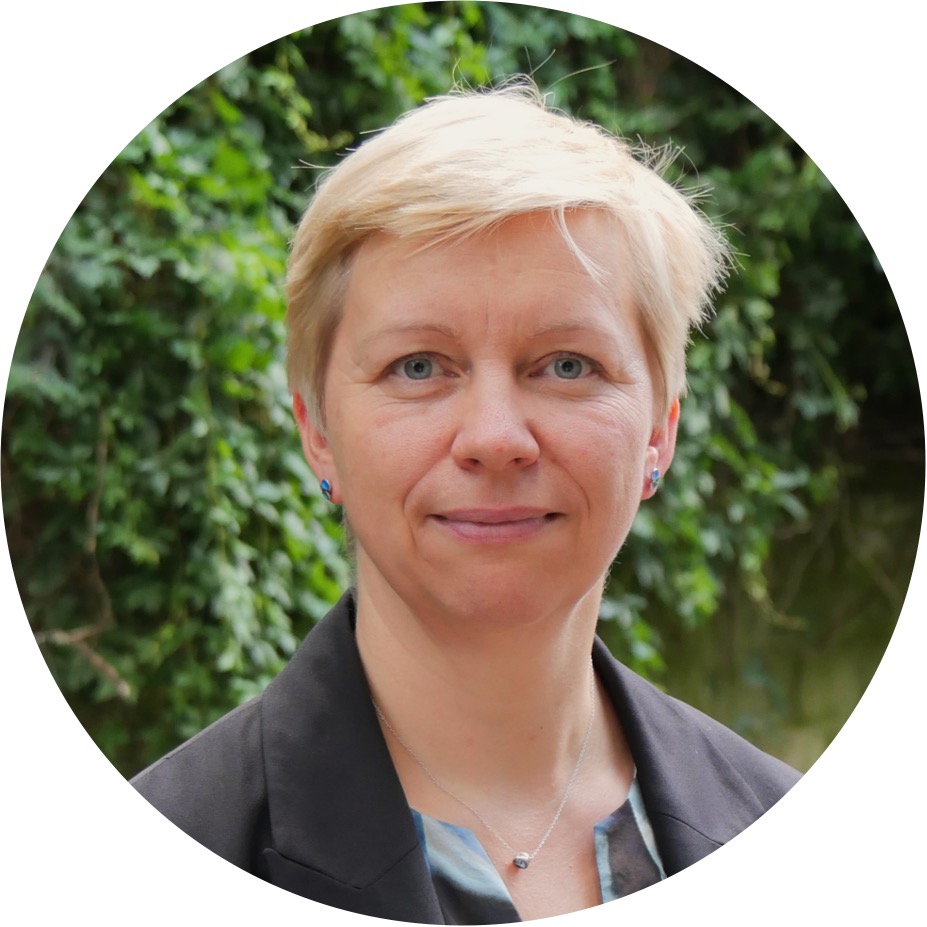
Regina Elsner is a Catholic theologian and professor for Eastern Church Studies and Ecumenical Theology at Münster University. Her research focusses on the relationship of Orthodoxy, politics and civil society in Eastern Europe, Orthodox social ethics and ecumenical anti-gender movements. See more on X @reginaelmo, Instagram @ostkirchenkunde.muenster, and LinkedIn.
Recommended Citation
Elsner, Regina. “Gender, Russian Orthodoxy, and the Invention of “Traditional” Values.” Canopy Forum, October 31, 2024. https://canopyforum.org/2024/10/31/gender-russian-orthodoxy-and-the-invention-of-traditional-values/.
Recent Posts



